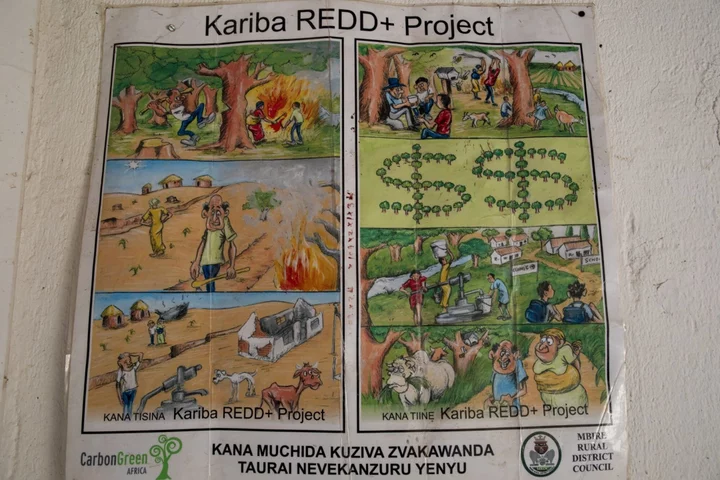The world’s second-biggest carbon-credits project has halted its operations after the government of Zimbabwe said earlier this year it will require companies to surrender half their revenue.
One of the operators of the Kariba REDD+ Project said it was forced to stop its work due to the legislative limbo that’s followed the government’s May announcement. As a result, a forestry project covering 785,000 hectares (1.94 million acres) of land is now in doubt. Kariba REDD+ is run by South Pole, the world’s leading seller of the offsets, and Carbon Green Africa.
“We did write soon after the government advised that for those projects already running we needed to regularize,” Charles Ndondo, a managing partner with Carbon Green, said by email. “We are however still waiting to get a response from the authorities and as such operations have been stopped.”
Zimbabwe roiled the $2 billion global offsets industry with its May 17 announcement, demonstrating that assumptions upon which carbon-credit projects were based could quickly be upended. Malawi and Zambia have said they also plan to demand a share of revenue.
While Zimbabwe said it plans to take the share of revenue and increase local ownership requirements the law is yet to be gazetted.
“There has been a slight delay on the issuance of the statutory instrument on the issue of carbon credits, but this is now ready,” Mangaliso Ndlovu, Zimbabwe’s environment minister, said in an interview. “The Attorney General’s office is now handling it. I’ve had sight of it as there was a workshop to discuss the issue this week. If all goes well, maybe by Friday this week the regulations will be gazetted.”
Offsetting Emissions
The project, in operation for more than a decade, is located in the northern area of Kariba, on the shores of the world’s largest man-made reservoir. By March companies had bought 23 million credits from Kariba, giving it the rank of second-largest project globally.
A carbon credit represents a ton of climate-warming carbon dioxide or its equivalent either removed from the atmosphere or prevented from entering it in the first place. They are bought by emitters of greenhouse gases to offset their activities.
Ndondo said it is working with various arms of government such as Rural District Councils, National Parks and communities benefiting over 350,000 people. Still, the project’s claims have been questioned and a number of buyers of the credits told Bloomberg earlier this year that they would not purchase any more of them. South Pole has said the credits are credible.
“We would like to continue with our work but of course within the confines of the law or if the law is not yet there then within guidelines or parameters set by the authorities,” Ndondo said.
--With assistance from Benjamin Elgin and Natasha White.

